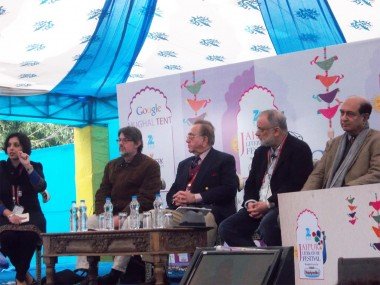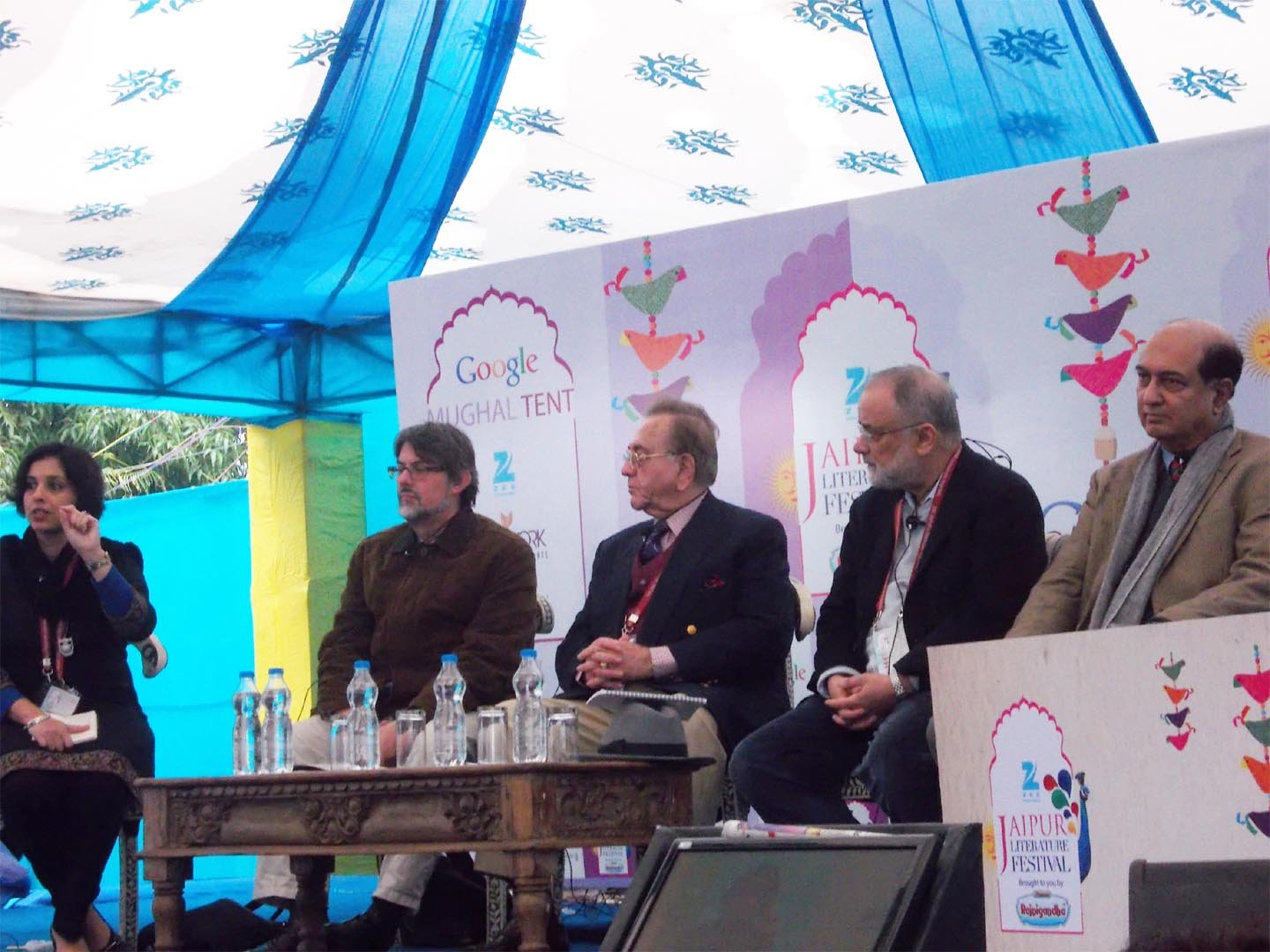Literature
Pakistan not on the brink but on a rethink: Experts

Pakistan is not on the brink, and recent developments have led it to
change its policy towards its western neighbour Afghanistan and the same
may be possible on its eastern side provided India enters into a
dialogue, experts say.
Participating in a discussion titled
"Descent into Chaos: Pakistan on the brink" at the Jaipur Literature
Festival 2015, most panellists including authors who have focussed on
the region Ahmed Rashid and Anatol Lieven and former Pakistani foreign
minister Khurshid Mahmud Kasuri believed that the change in Pakistani
policy towards Afghanistan augured well for the region.
They also pitched for resumption of the India-Pakistan dialogue.
Former
Indian diplomat G. Parthasarthy was, however, more cautious and said
any dialogue between the two countries needs peace on the borders and
more action by Islamabad against terrorists "including telling
(Jamaat-ud-Dawa chief) Hafiz Saeed to stay at home".
Rashid,
author of "Descent into Chaos: The United States and the Failure of
Nation Building in Pakistan, Afghanistan, and Central Asia" and
"Pakistan on the Brink: The Future of America, Pakistan, and
Afghanistan" among others, said 2013-14 was a year of crisis for both
Pakistan and Afghanistan but it saw Afghanistan step back from the brink
as relations with Pakistan improved and there were proposals for
talking to the Afghan Taliban.
In Pakistan, events like the
Peshawar school massacre ended any plans Prime Minister Nawaz Sharif had
of talking to the extremists while leading to the military rethinking
its policy of a sponsorship of terror, he said.
"Peshawar
galvanised the political parties and the army on one platform and to
make long-term-plans," said Rashid, adding that what was needed in
Pakistani Punjab was not a military option "but deradicalisation,
employment generation and change in education syllabus".
"The army and the ISI now realise what an acute threat the Pakistani Taliban poses.
"In the circumstances, it is stupid India is not talking to Pakistan. Dialogue is needed," he said.
Anatol
Lieven, author of "Pakistan: A Hard Country", said Pakistan now has a
new attitude towards domestic militancy but fear of India has not gone.
"There is however a change of heart, not complete, but significant," he said.
As
far as Afghanistan is concerned, Pakistan will no longer follow the
policy of the 1990s in seeking a client state in Afghanistan, he said.
Kasuri,
who reveals how close India and Pakistan were in 2007 on a framework to
solve the Kashmir issue in his forthcoming book, said he was confident
of that era of understanding could return.
Parthsarthy backed him, saying though he was peripherally involved then, what Kasuri said was the truth.
Ahmed
also noted there was a widespread perception in both Pakistan and
Afghanistan that the US was leaving the region for good and this could
change its dynamics.
Asked what Pakistan was on the brink of,
Lieven said it would trundle along as usual though militancy was not
going away easily and India couldn't not talk, while Kasuri said he was
hopeful that talks would be held soon.
As Parthasarthy held talks
could not happen in a conflict situation, Kasuri countered that all
negotiations were successful in war only.
Rashid held Pakistan
was on the brink of "saving itself" while Parthasarthy said he was a
realist but any country doesn't want its neighbour on the brink.
(Vikas Datta can be contacted at vikas.d@ians.in)
Caption: Author Anatol Lieven, former Pakistan foreign minister
Khursid Mahmud Kasuri, author Ahmed Rashid and former Indian envoy to
Pakistan G.Parthasarathy in a session on Pakistan at the Jaipur Litfest
201




































